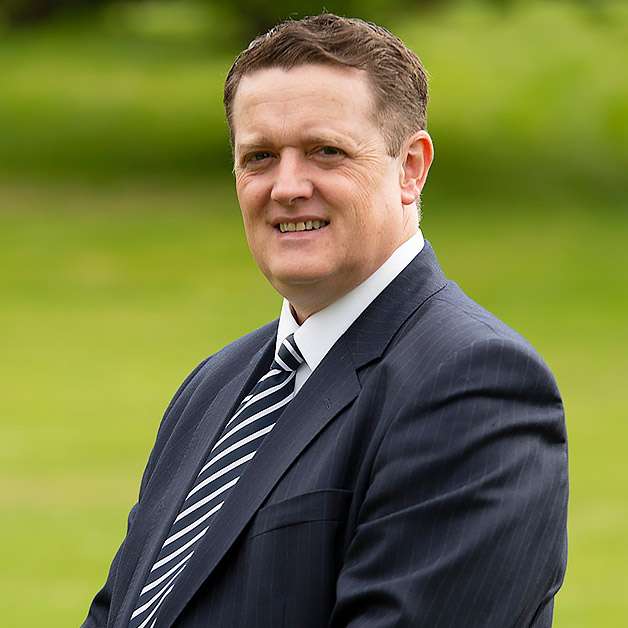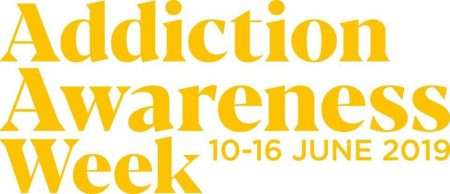How Bad is Your Addiction?
So, you want to know if your addiction is severe enough for treatment. The fact that you’ve found us, or are asking Google questions about your alcohol or drug misuse, might be proof enough that you need help.
Rehab Costs & Options for Alcohol | Drugs | Other addictions
We do not need to waste time detailing physical and psychological signs of addiction – you know the effects alcohol and drugs has over your mind and body, the question is ‘are you bad enough?’
Let’s find out…
The quickest and most accurate way to tell
Free addiction assessments provided by Castle Craig’s expert admission team will be able to quickly help you identify the seriousness of your addiction, alongside offering advice for next steps.
When it comes to addiction, professional advice and assessments will be critical in helping you find the right help for your unique condition.
You might be gambling, you might be drinking or taking drugs, whatever your addiction, for us, it’s a question of why not what.
Book a free addiction assessment now.
Do you feel like you are not the same person you once were?
Do you recognise yourself? Are you proud of the person you have grown into?
All of us, at one point in our lives, get lost – and that’s OK. Sometimes we can get so lost that we do not even recognise ourselves anymore.
Our appearances might have changed, but more importantly, the things that made us who we are have all started to disappear, leaving only one defining thing left; drugs or alcohol.
If you’ve lost interest in life, in your relationships and things that used to make you happy then you are struggling and you need help no matter how you choose to find it.
Is Addiction Costing you more than Money?
Not only will addiction be incredibly harmful to your health, but it will also deteriorate everything else in your life, bit by bit, piece by piece.
Has addiction affected…
- Your relationships? Friends, family and partners?
- How other people perceive you and see you?
- People’s or co-workers faith in your abilities?
- Your mental health/how you can regulate your moods?
- Your sanity? Do you feel more paranoid, unsure or anxious?
- Your home/safe space? Do you feel like you have to hide your usage?
Do you use drugs or alcohol to feel better?
Life undoubtedly can be difficult sometimes and as humans, it’s our instinct to devise our own coping mechanisms to manage any past trauma incurred.
Trauma is not limited; it can take any form and approach us at any time – even if it had taken place in childhood. Trauma can present itself in flashbacks, unwanted memories, and lack of confidence, erratic behaviour and inappropriate displays of emotion.
But even everyday stressors and pressures can be enough to tip you over the edge – and it’s only when we lose faith and the meaning of life that many turn to alcohol and drugs to replace feeling good and in control.
There are two types of symptoms of addiction – personal symptoms and physical symptoms
The personal symptoms are the ones that are noticeable first: increased lack of self-care and hygiene; deception: hiding alcohol or drugs and covering your tracks, making excuses to be away from home; drink driving; missing family events; getting into debt; losing your job. Then you have the physical signs of addiction, the health problems, which are harder to ignore – unusual weight loss/gain, long hangovers, redness in the face, the shakes, repeated hangovers, injuries, yellow skin tone, nose bleeds, seizures.- Mark Abrami, Senior Therapy Manager
In the short-term, substances can take your mind away from everyday stresses, but in the longer term, it traps you.
How long have you been drinking or using drugs?
Have you noticed that your mental health has gotten better?
Of course not, because the answer does not lie in the bottom of a bottle or at the other end of a pipe.
Substance misuse often makes mental health conditions worse and teaches your brain to rely on substances to make you feel good. And it’s this change in behaviour that needs to be corrected in order for you to live a life free from addiction.
Have Friends, Family or Co-workers Commented On Your Usage?
Have people you loved expressed concern? Do you find them often concerned about your safety?
Sometimes friends and family can pinpoint the changes in your behaviour that you might not see because of denial or being under the influence.
Those who love you might be beginning to see different sides to you that worry them and this is something you should not laugh off or ignore.
People often don’t address their problem until someone else tells them it is a problem – and this is usually the family who have been suffering alongside the addicted person. – Mark Abrami, Senior Therapy Manager.
Do you find that you often turn into someone else?
It’s no news that if you drink or use drugs that it can make you more impulsive or confident, so seeing a different side to someone when they are under the influence can be expected.
However, it’s when you start to become this person all the time that poses a great threat.
Those suffering from co-occurring mental health disorders like depression are likely to have a negative view of themselves already, so by progressing further into addiction you begin to lose your identity and get further and further away from the person you used to be.
Do you struggle to regulate your emotions?
Substance misuse is often linked with mental health disorders like anxiety and depression, which are mood disorders.
Often, substances are used naively to target these emotions, manage them and relieve them.
But in fact, they oft make them worse.
For example, cannabis can make you angry and irritated. Whilst alcohol might leave you feeling vulnerable and sad.
For those individuals who might be suffering from Emotional Dysregulation Disorder, drugs and alcohol might inflame this disorder and affect your behaviour even more erratically.
Is Your Relationship with Yourself Damaged?
You might not associate yourself with trauma. However, the fact is that traumatic events shape you and your brain chemistry.
Whether it’s a childhood experience or something you’re facing as an adult, it’s these types of occurrences that change how you view the world and ultimately, yourself.
You might have low self-worth and display a lack of confidence in yourself and your abilities. Sometimes, you might believe that you are worthless. This might have pushed you into certain activities that have destroyed your life further.
It’s not just about your relationship with alcohol and drugs, but rather the relationship with yourself that fuels the reasons why you turn to these substances in the first place.
How serious does addiction have to be before you seek rehab?
As addiction experts who run successful, evidence-based programmes we say that when it comes to addiction, there is no scale of severity before you seek help.
People often wait until they reach ‘rock bottom’ before seeking help. This is because of the huge impact of denial in the mind of the addicted person. It is usually when something happens that is impossible to ignore such as a car crash or an arrest, that people are suddenly shaken out of their denial. And it is often when someone tells them they have a problem when their family eventually say to them ‘you need help, we can’t go on like this anymore’, that they realise their alcohol or drug misuse is out of control. – Mark Abrami, Senior Therapy Manager
Anyone who is struggling with a mental health disorder and turns to drugs and alcohol (maybe unknowingly) needs attention because they will continue to slip into negative behavioural actions that will keep them trapped in the cycle of addiction.
Here at Castle Craig’s drug and alcohol rehab, it does not matter about the amount you consume or use or the frequency in which you turn to drugs, but why you feel so at home using them and why you keep turning to them to feel better, manage or forget.
Let us help you. Call 01721788471.
Be careful what you read
 The internet will provide perfect denial and distraction pieces like ‘The Different Stages of Addiction.”
The internet will provide perfect denial and distraction pieces like ‘The Different Stages of Addiction.”
As an addiction hospital, we often see these articles as particularly dangerous. This is because those struggling with addiction issues are often in denial.
For example, when you come across these types of pages you are likely to assess yourself against an ill-informed list, which is likely written by someone who does not understand addiction at all.
So, of course, you’ll read this piece and think “my addiction isn’t that bad… I still have time.”
Only take advice from medical professionals and psychiatrists who have sat with you and assessed your condition face-to-face. We will be the only ones who can truly tell you if your addiction is bad enough.
Book a free addiction assessment now.
How do you know if you are bad enough for inpatient detox and residential rehab?
Well, people who come here have usually tried to quit alcohol or drugs by themselves. They have tried the AA meetings they have been to see an outpatient therapist. But no matter how hard they try they can’t stop drinking and ultimately it is getting worse and killing them. These people need intensive medical and therapeutic support in a 5-8 week programme. Here, they can undergo detoxification, and receive the intensive programme of therapy that really addresses underlying psychological and emotional reasons behind the drinking or drug use. Reasons are often trauma, abuse, grief, anxiety, depression. Here at Castle Craig, we give them the building blocks for a new life in recovery that they can take away with them. Then of course a robust continuing care programme that sees them through the early days of recovery at home. – Mark Abrami, Senior Therapy Manager
Get in touch today
For how we can help you please telephone Castle Craig direct on our 24-Hour Helpline: 01721 728118 or clicking here to arrange a free addiction assessment or here for more information.
You’ll be glad you did.






